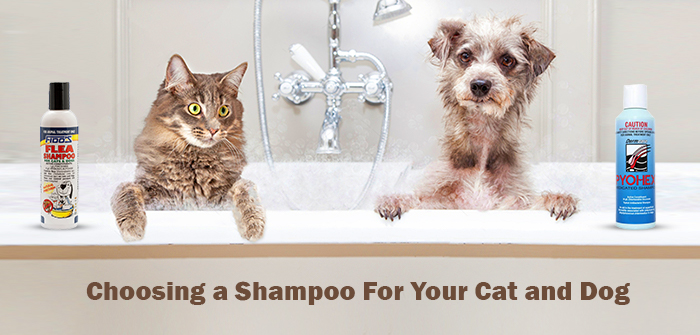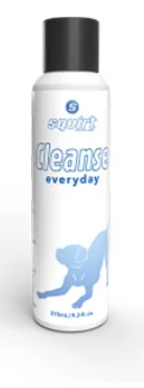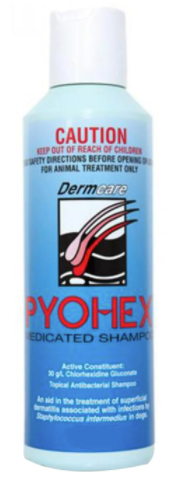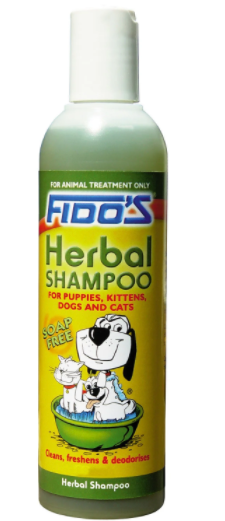Choosing a Shampoo For Your Cat and Dog
Your pet’s skin and coat are a protective layer that safeguards their muscles and internal organs and helps maintain body temperature. Therefore, it is vital to groom and bathe your animal companion regularly that will take you a long way forward in achieving the best health for your pet, hence picking up the right kind of shampoo for your animal love becomes even more critical.

Before you start your hunt, it is necessary to understand your pet’s skin type. Is it oily or dry, itchy or pungent? Or do you want to use it for any relative medical condition or grooming purpose? We have prepared an exclusive guide with different sets of commonly used pet shampoos that can help you make the right choice for your fur friend.
Cleansing Shampoo
Dogs and cats with normal skin and coat without any medical conditions are the easiest to find an appropriate shampoo. These products are termed as ‘shampoo and conditioner’ in any pet store that washes out any dirt on their skin and improves your pet’s odor. The price ranges from low-cost to expensive grooming pet care shampoos.
Medicated Shampoo
Dogs or cats with dry and itchy skin need specially-designed grooming products that improve their medical conditions. Some of the medicated shampoos are reported with unfavorable reactions and may worsen the existing condition. Therefore, it is necessary to seek advice from your veterinarian before using this type of shampoos on your pet.
Natural Shampoo
Natural pet shampoos are always a good choice because they are gentler and less irritating to your pet’s skin. Shampoos with organic ingredients are available for all dogs and cats breeds with different types of skin.
Flea and Tick Shampoo
Flea and tick shampoos are very useful, especially when there is a breakout of these parasites. These products contain special types of insecticides that eliminate fleas and ticks from dogs and cats. Flea and tick shampoos do not stop parasites from infecting the animal; this is why a thorough cleaning routine for the home and your pet is still required to achieve parasite control.
Other Tips
- Avoid using human shampoos on your pet.
- Examine your pet’s skin and coat immediately after bathing, and keep an eye on it between baths.
- Consult with your veterinarian before using any medicated shampoo on your animal.
- Do not use harsh and unnatural dyes or colorants on your fur friend.
Conclusion
The fact of the matter is that, just as we take care of our very own skin tone, we should pay similar attention to our pet’s hair and skin as well and do our bit to keep them healthier and happier throughout their lives.





